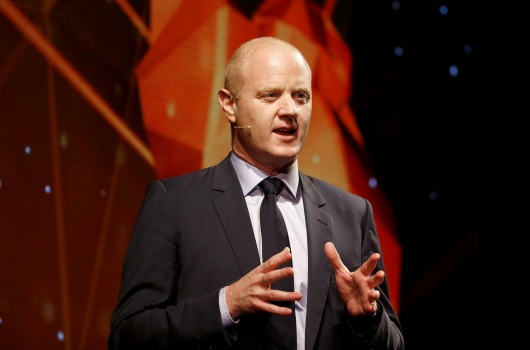Why Ian Narev is the All Black of Banking
In my AFR column I argue that Ian Narev is the best commercial and retail banker of his generation and that Standard & Poor's is behaving like an economist desperately clinging to a controversial forecast that has proven horribly wrong (click on that link to read for free or AFR subs can click here for direct access). Excerpt enclosed:
"Even after the market hammered CBA for its overblown Austrac dramas (the essence of which was a single coding error that thwarted 53,506 money laundering alerts), Narev stands head and shoulders above his peers in pure statistical terms as the Beauden Barrett of banking. (For those who do not follow rugby, Barrett is the All Black's brilliant fly-half.) Since his appointment as CEO in December 2011, Narev has reported world-beating average annual returns on equity of 17.4 per cent, about 39 per cent higher than the average of Australia's other major banks. In its most recent results, CBA's 16.1 per cent return on equity was a massive 4.4 percentage points above its peers. On this metric alone CBA has been the best large retail bank in the world. More substantively, CBA has delivered total returns to shareholders of 165.9 per cent since December 2011 – even after its share price plummeted from almost $88 to $78 partly as a result of the Austrac hyperbole, which the market has overpriced. Post Austrac, CBA's cumulative shareholder returns are still some 28 percentage points above the average of its rivals between December 2011 and end-January 2018...
S&P is behaving like an economist desperately clinging to a controversial forecast that has proven horribly wrong with the passage of time. Four days after the July 2016 double-dissolution election, and notably before the final results had been determined, S&P put Australia's AAA rating on a "negative outlook" for a potential downgrade. The driver was S&P's belief that "without the implementation of more forceful fiscal policy decisions, material government budget deficits may persist for several years with little improvement". "Ongoing budget deficits may become incompatible with Australia's high level of external indebtedness and therefore inconsistent with a 'AAA' rating," S&P said, adding that "fiscal consolidation may be further postponed" given the election result in which "neither of the traditional governing parties may command a majority in either house". That was the first thing it got wrong: the Coalition would secure a vital majority in the house of representatives. S&P declared that its revenue forecasts were much more pessimistic than those produced by Treasury with "iron ore prices close to US$20 per metric ton lower than the [US$55] level assumed in the government's budget" and a current account deficit that remained above 3 per cent of GDP over the forecast horizon. Both proved highly erroneous: the iron ore price is currently US$72 and has averaged US$68 since S&P's move to a negative outlook (way above S&P's US$35 estimate); and the current account deficit has averaged just 2.2 per cent of GDP. "The negative outlook on Australia reflects our view that prospects for improvements in budgetary performance have weakened following the recent election outcome," S&P continued. It warned that there was a one-in-three chance of a downgrade if "we believe parliament is unlikely to legislate savings or revenue measures sufficient for the budget deficit to narrow materially and to be in a balanced position by the early 2020s". In its most recent January 2018 report, S&P claimed that "enacting further savings or revenue policies could remain a challenge, given the Senate's unwillingness in recent years to legislate many of the government's fiscal policy measures or doing so after considerable delay". This is misleading. Since the 2016 election the government has, in fact, deftly secured passage through the parliament of over $37 billion in budget repair measures. And the net impact of repair measures announced prior to the 2017-18 budget, and yet to be legislated, is only $2.9 billion." Read the rest of the article here.


